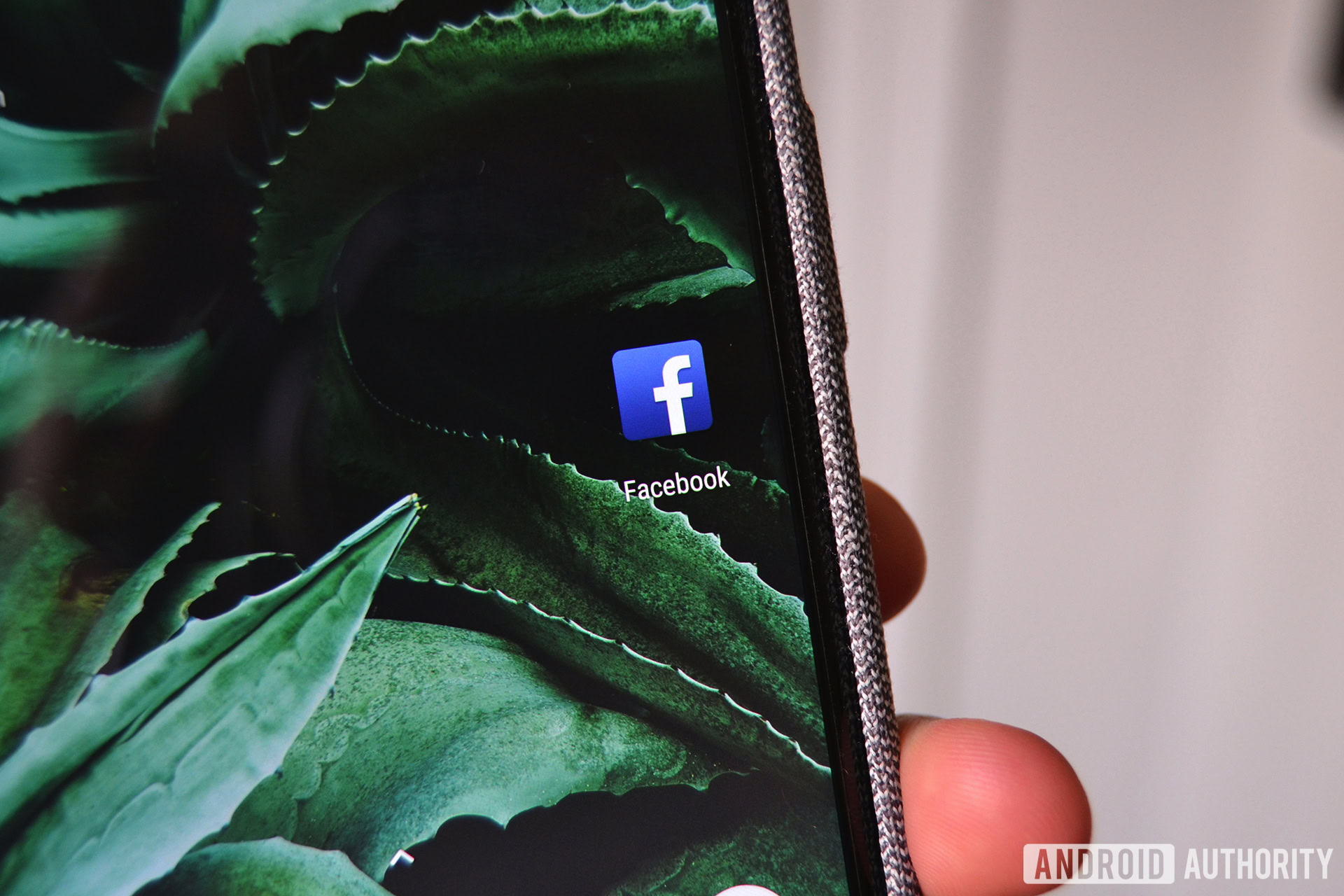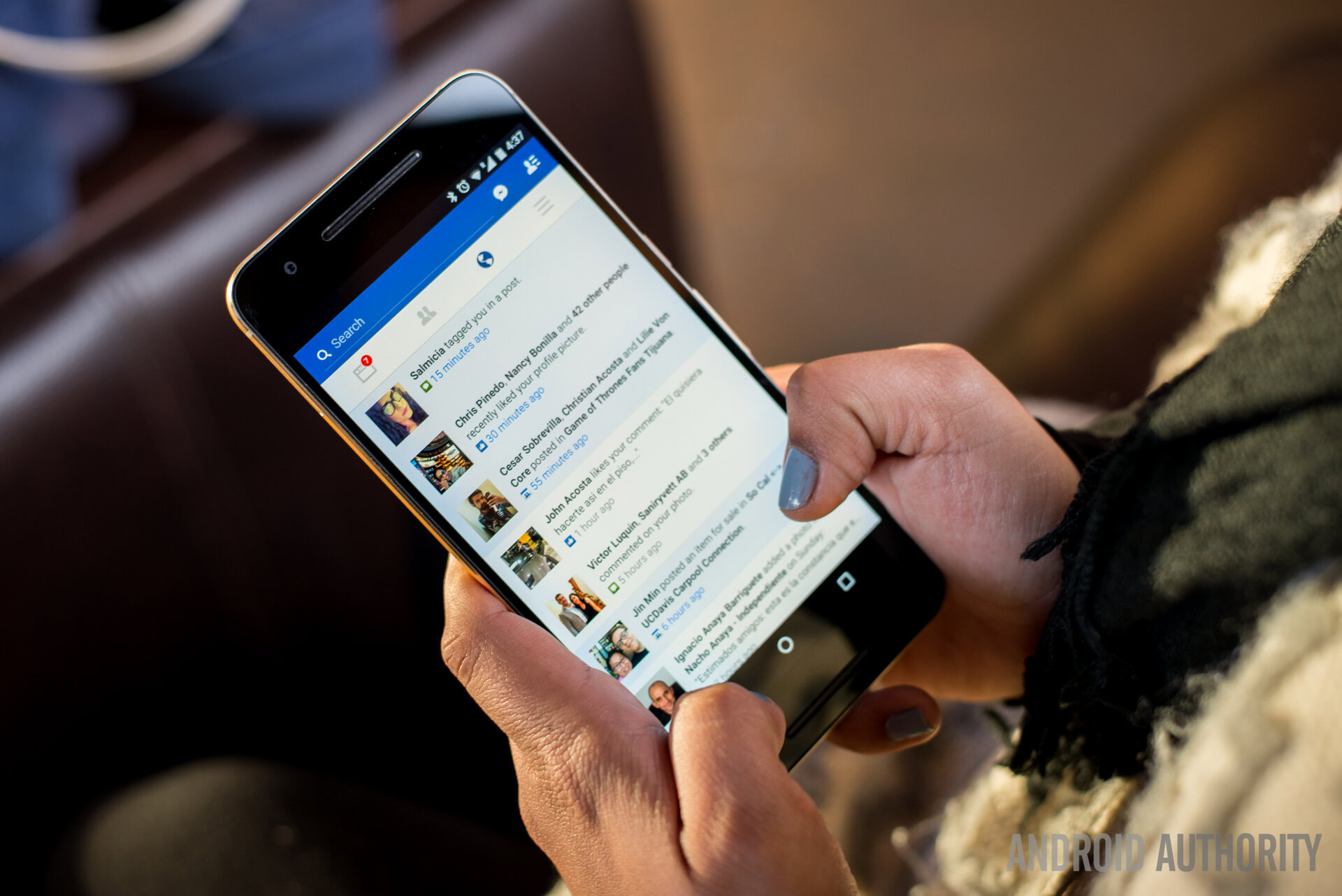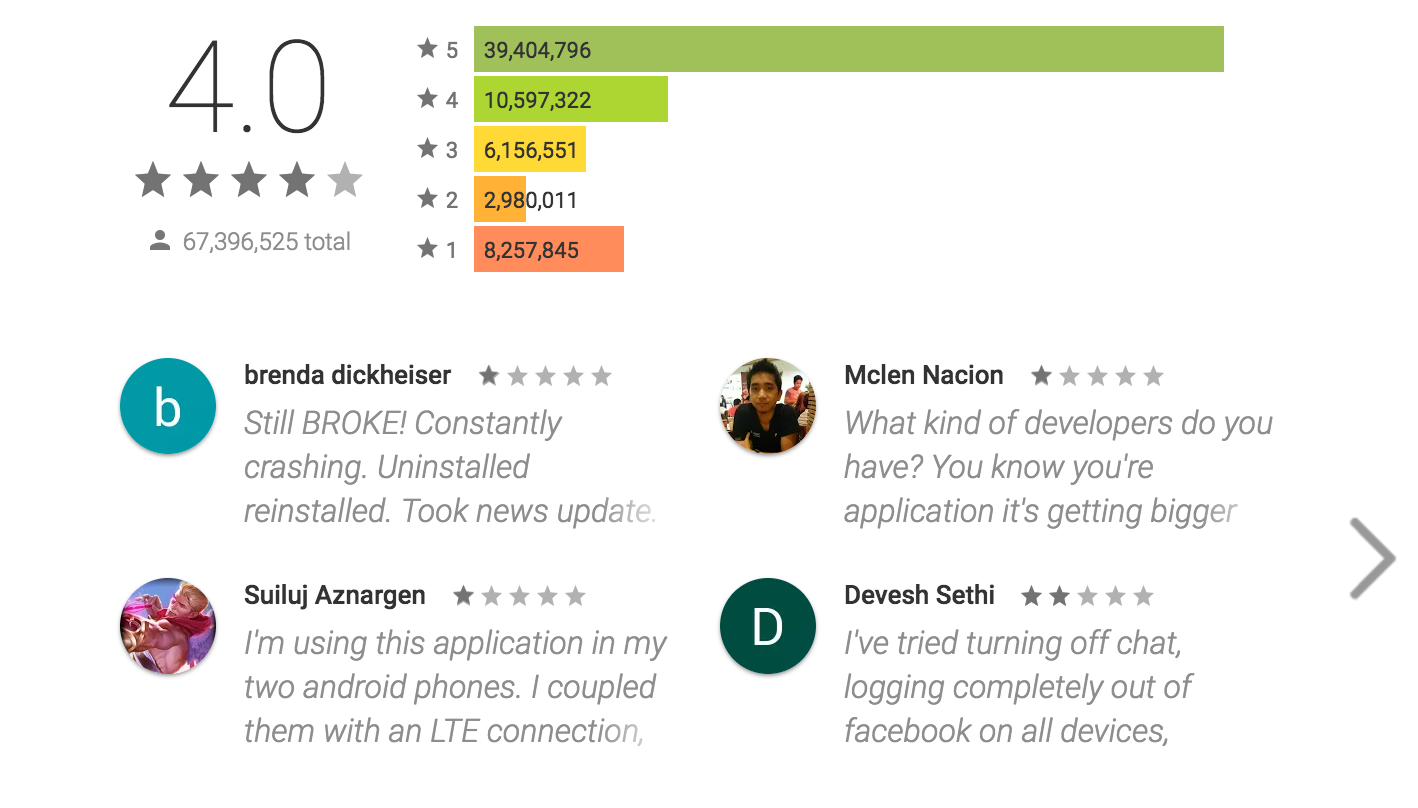Affiliate links on Android Authority may earn us a commission. Learn more.
Facebook now boasts 2 billion monthly users but what about its app?

Mark Zuckerberg announced that Facebook has reached yet another milestone with 2 billion monthly users, but its Android app is still nothing to boast about.

Facebook is still the largest social networking site

I’m willing to bet that you have a Facebook account, just like I do and just like other billion or so daily active users out there. What started out as a small Harvard students-only website founded by Mark Zuckerberg and fellow Harvard College students in 2004 quickly expanded to other universities in Boston and soon the world. The company has grown exponentially ever since, setting impressive records along the way and now boasting almost 19,000 employees worldwide.
Today marks yet another milestone reached by the social network giant: in a Facebook post a few hours ago, Mark Zuckerberg announced that the Facebook community has officially hit 2 billion people. To be more precise, the number that Zuckerberg is referring to is the total number of monthly active users. To put it in perspective, YouTube is a distant second with 1.5 billion monthly users, followed by Facebook Messenger and WhatsApp with 1.2 billion monthly users (and yes, they are both owned by Facebook itself). Meanwhile, Snapchat, the app that everyone seems so eager to copy, remains at an estimated 255 million according to TechCrunch.
So, what about its app for Android? Has it grown at the same speed at which Facebook’s user base has?
Now, Mark Zuckerberg added that Facebook is “making progress connecting the world” and bringing “the world closer together.” So, what about its app for Android? Does it play a role at all in delivering that promise? Has it grown at the same speed at which Facebook’s user base has?
Facebook app has come a long way but not far enough
Facebook can boast about the 2 billion monthly users, and yes, that’s almost 30 percent of the world’s population. It can boast how many billions of users have downloaded its app on their Android devices. It can boast about the 67,396,525 reviews in the Play Store. But can Facebook boast about the quality of its app and the experience it provides? Based on a quick glance at the first few reviews in the Play Store, the answer is no.

Countless users – including myself – have given Facebook less-than-stellar ratings, and the issues range from random crashes to petulant ads in the middle of videos. For me, however, the problem lies elsewhere, and it’s all about consistency and user-friendliness or the lack thereof.
While Zuckerberg emphasizes over and over again the importance of videos on Facebook, the app offers such deplorable performance when it comes to videos.
To this day, I struggle to tag people in photos on Facebook on my Android phone: sometimes, it would suggest people whom I don’t even know and refuse to let me tag those who are actually my Facebook friends. I usually end up going back to my laptop. Not only that, I find it hilariously ironic that while Zuckerberg emphasizes over and over again the importance of videos on Facebook, the app offers such deplorable performance when it comes to videos. Some videos would randomly start playing, some videos would require a click to play, but more than just few times, the Facebook app would simply refuse to play anything at all after one or two seconds. Completely closing the app and restarting solves the problem usually, but for an app that’s been around for 7 years to have that sort of problem on devices like the Galaxy S8 and Galaxy S7 is concerning.
And as for settings, I don’t know where to start: there are so many sub-settings – General, Security and Login, Privacy, Timeline, and so on – that often times, I end up clicking every one of them. What’s the difference between Security and Privacy? Do I change my password under General or Login? Do I manage who can see my posts under Privacy or Timeline? Facebook may have 2 billion monthly users now, but its app certainly doesn’t offer the maturity and ease-of-use that a 13-year-old platform should. As the social network diversifies and more specifically, reaches different age groups, a straightforward and streamlined way to control its app’s settings will become even more paramount.
As the social network reaches different age groups, a straightforward and streamlined way to control the app’s settings will become even more paramount.
More importantly perhaps, as it accrues more users worldwide and as more and more users download its app for smartphones, Facebook will have to ensure that its app is a central part of the company’s promise to bring the world closer. Fake news and the prevalence of laughably false information aside, people’s lives are affected by the app. Millions of Facebook users are now under the age of 13, most of them access Facebook as an app on their smartphones, and 20 percent of kids in the US are cyber-bullied and have considered suicide as an option. Instead of becoming a place where people broadcast their suicide attempts, the Facebook app has to implement an effective way to address Internet- and Facebook-related social issues, similar to the recent addition of real-time suicide prevention tools in Facebook Live.
TL;DR
Whether it’s Voltaire who originally said it or Ben Parker, with great power does indeed come great responsibility, and in the case of Facebook, 2 billion users require great responsibility. Mark Zuckerberg can boast about his company’s new milestone, but the Facebook app for Android is proof that it’s not quite ready to accommodate all 2 billion people. The app has a lot of room for improvement: not just the frustratingly inconsistent UI or the terribly confusing settings menu, but also the ways in which the app could play a role in more serious issues like fake news, cyberbullying, and teen suicide.